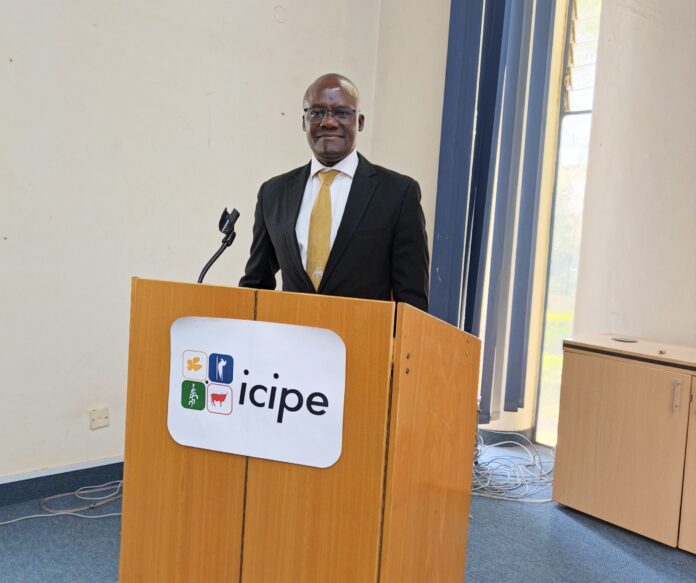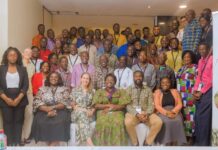Research must not end in reports that gather dust on shelves. It must change lives, strengthen communities, and shape policies, says Dr. Takemore Chagomoka, a leading food systems specialist at the International Centre of Insect Physiology and Ecology (icipe).
Dr. Chagomoka made the remarks on October 1, 2025 during a science seminar at icipe in Nairobi titled “Research, Outreach, Dissemination for Impact.”He urged scientists to design their projects with beneficiaries in mind from the very beginning.
“Too much research is done but never reaches the people who need it most. From day one, we must ask: How will this work change lives? Who will benefit? How do we share it? That is how we create real impact,” he told participants.
As Head of Innovation, Scaling, and Business Acceleration (ISBA) at icipe, Dr. Chagomoka stressed that Africa’s biggest challenges including climate change, food insecurity, and political instability are too complex for one discipline to solve. Instead, he called for more collaboration across sciences.
He gave the example of smallholder farmers in Kakamega who often keep goats, raise poultry, and grow vegetables alongside maize. “Such a farmer needs animal science, plant science, and more. That’s how complex the real world is, and why research must reflect that integration,” he said.
Highlighting icipe’s success in insect-based animal feed, Dr. Chagomoka noted that black soldier fly larvae are now widely used as a protein alternative to currently used fish meal and soybean. Today, between six and eight percent of animal feed in Kenya comes from insect protein.
“That is real impact farmers accessing affordable feed, businesses cutting costs, and the environment benefiting from sustainability,” he said.
Dr. Chagomoka further explained that impact must be measurable, citing domains such as policy and institutional change, environmental and climate co-benefits, poverty reduction and income growth, gender and social inclusion, and food and nutrition security.
He pointed to international examples where science has delivered measurable results. CIMMYT’s drought-tolerant maize, for instance, has increased yields by up to 30 percent, improving food security for more than nine million people across Africa. Similarly, WorldFish’s small-scale aquaculture projects in Bangladesh have boosted women’s incomes and improved family diets.
“Impact is not only about discovery it’s about how well we measure it, communicate it, and replicate it,” he emphasized.
Dr. Chagomoka urged institutions to prioritize urban agriculture to secure food for Africa’s rapidly growing cities. With migration and urbanization accelerating, he believes innovative methods from balcony farming to insect rearing will be vital.
At the same time, he warned that climate change remains the greatest threat to food systems on the continent. “We need climate-smart production systems and strong policy support. Only then can we secure Africa’s next generation,” he said.
For Dr. Chagomoka, the message is urgent and clear: “Research that remains on paper is wasted. Research that transforms livelihoods is the science Africa needs.”








